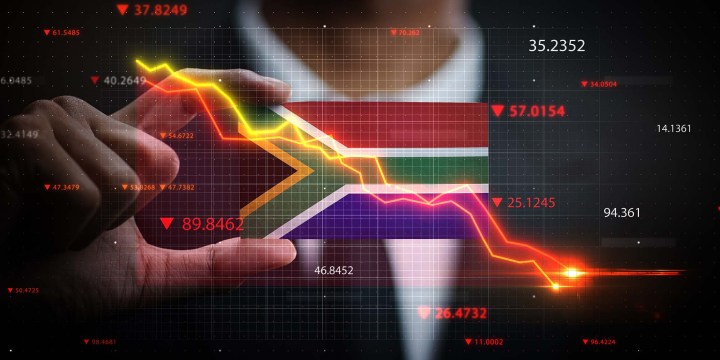BUSINESS REFLECTION
After the Bell: A week of weak economic data is a portent of change

The lowlights of the past seven days range from an unexpectedly painful contraction in SA’s GDP to the Cabinet reshuffle that left a great deal to be desired.
Sometimes events rush past you so fast it’s hard to keep track of them all, let alone see how they might interact with each other. That is certainly true of the past week in SA, a week that has been extraordinarily news-filled in a country never short of newsworthy events.
The highlights (or perhaps lowlights) for me are these:
First, SA’s GDP contracted by an unexpectedly large amount in the last quarter of 2022, with the economy shrinking by 1.3%. That is a thumper of a decline, made more painful by the fact that the median projection was a contraction of 0.4%.
The ominous reason for the contraction is, of course, the new intensity of rolling blackouts, now almost an order of magnitude larger than it has ever been.
The significance is obvious: this is not a cyclical kind of thing that depends on a range of factors; it’s definite and intense. The consequence is that the chances of a recession coming have exploded by yet another order of magnitude.
Second was the Cabinet reshuffle. Much has been written about this, but notably, SA has a new deputy president in Paul Mashatile and a new minister of load shedding in Kgosientsho Ramokgopa. Some of President Cyril Ramaphosa’s opponents have also been sidelined.
Visit Daily Maverick’s home page for more news, analysis and investigations
But a wholesale shake-up of the governing structure, this was not. In some ways, the reshuffle was more significant for what it did not do than for what it did, which was largely anticipated. It suggests the President is sticking with his incremental strategy, which implies a worrying and continuing lackadaisical attitude. South Africans hoping for a significant, authoritative course change (me!) didn’t get it.
Third: The strike in the public health sector is important, partly because it comes in the face of restrictions against strikes in the industry, and partly because the strike may spill over to the police this week. That would indicate growing frustration in the public sector, which is not without justification since increases to the civil service wage bill have been miserly over the past few years. Of course, it’s easy to say that SA’s public service is generally well-paid by the standards of what the country can afford. But it doesn’t make it easier for people battling to pay their bills, especially in an inflationary environment.
Fourth is, well, an economic hotchpotch. This category includes belated repercussions from the greylisting saga; the decision by S&P Global late on Wednesday to downgrade SA’s outlook to “stable” from “positive”, essentially because of the scale of the power crisis; and the rapidly declining business confidence figures and the first current account deficit since 2019.
Fifth, sadly, is the rand. From the above list of events, inevitably the shock will be absorbed, to the extent it can be, by the value of the currency. As my colleague Ed Stoddard put it, the rand’s decline is emblematic of SA’s economic malaise. There it is in a nutshell.
Consequences
So this is the data; what are the consequences? One thing quickly to bear in mind is that many businesses are reporting their financial results for the year, and often the reports seem pretty good. Standard Bank, for example, reported this week its highest profits ever.
But don’t be deceived. Banks perform well in a higher interest rate situation, and they are certainly getting that at the moment. But essentially, annual corporate results cover the period that started 18 months ago and ended six months ago. For many companies, repeating these results this year is going to be a really tall order.
It’s also hard to escape that another upshot of this is going to be political, and I wonder whether the country is ready for it. The ANC is polling at around 37% at the moment. What will that look like in a year’s time when the consequences of the poor economic environment become much more apparent?
Political realignment
South Africans voted in 2019 for a renaissance government, a government that would take us back to the glory years of the 2000s. Instead, with the horrible assistance of the Covid crisis, what they have received in return is an aging, lacklustre government appearing to be endlessly caught up in growing corruption and criminality. What we are seeing is the gradual amalgamation of political and criminal networks.
Anything could happen between now and the elections, but the chances of the ANC retaining its status as the majority party seem to me, at least, very slim. All of this economic negativity could easily come crashing down on top of the ANC over the next 14 months.
South Africans need to wake up to the possibility of a very considerable political realignment. Some of the possibilities seem benign; some seem positively frightening. Business needs to think carefully about what role it should be playing in that context. There is obviously more to be said on this topic. BM/DM



















Comments - Please login in order to comment.